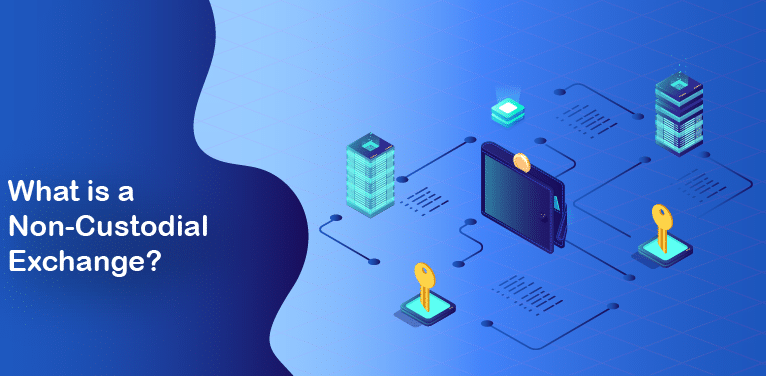There are different types of exchanges in the crypto space. Some fall under the custodial exchange category, meaning that these crypto exchanges have control over the funds of the users. A custodial exchange is also called a centralized exchange. In this type of cryptocurrency exchange, users have to follow the KYC guideline before they are allowed to trade. Exchanges like Binance and Coinbase are custodial exchanges.
The second type of exchange where users are allowed to trade their cryptocurrencies is the non custodial exchange or decentralized exchange. As the name states, users are allowed to trade with one another using the peer to peer method. Traders can create accounts in this exchange without the need for KYC. Unlike their custodial counterpart, in a decentralized exchange, traders can’t store their tokens in the exchange, as the network doesn’t have custody of any crypto. The assets are held by the user in their personal wallet, and when they want to get involved in the market, they have to link the interface of their wallet to the exchange to buy or sell crypto assets. A prominent example of a non custodial exchange is Whalesheaven.
What is non custodial in crypto?
Usually, the term non custodial in the cryptocurrency space is linked to an exchange and a wallet. For a non custodial wallet, the traders have control over their private keys. No one can access their keys, except them. It removes the need for a third party to control or access the private keys. This means that the trader has the responsibility of ensuring that the private keys do not get missing, and adding security protocols to ensure that their funds are not accessed by intruders. Many traders that are involved in a large volume of crypto trading prefer non custodial wallets because the control is vested on only them.
Usually, a user of a non custodial wallet has to add a password that is known to only them. This type of wallet can come in different forms like app-based, web-based and even hardware format. WH Cypher is a classic example of a non custodial wallet that can be linked to any exchange.
The term, non custodial, is also linked to exchanges. A non custodial exchange is a decentralized exchange where different users carry out transactions, without intervention from any centralized body. It is a peer to peer exchange. Traders can utilize it without passing through a stringent KYC process that involves uploading documents.
What is the main benefit of custodial exchanges?
Users tend to store their crypto on a centralized exchange, and when it is hacked, the tokens stored on it may be stolen. The exchange may end up refunding a part of the crypto lost or all of it. Sometimes, it may not return any. A great advantage of non custodial exchanges is that the crypto is not stored by any centralized exchange, but by the owner of the tokens. The KYC process in a non custodial exchange like Whalesheaven is usually not compulsory. WhalesHeaven has designed its trading process to be seamless for both beginners and expert traders.
